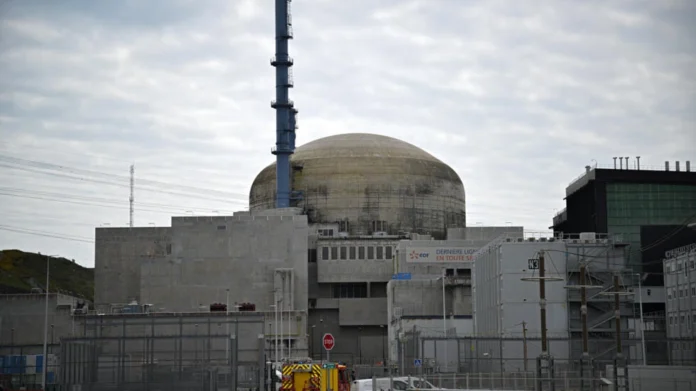
In a significant development for France’s nuclear energy sector, EDF has received the green light from France’s Nuclear Safety Authority (ASN) to commence the divergence phase of its Flamanville EPR reactor.
This marks the first crucial step towards generating electricity from the third-generation European Pressurised Water Reactor (EPR), which has been a focal point of France’s nuclear renaissance.
EDF announced the commencement of divergence, which initiates the nuclear fission chain reaction within the reactor core. “The divergence phase has begun.
This operation will make the reactor core beat for the first time,” EDF stated in a video released on X. The company emphasized that while divergence is a critical milestone, the reactor will not immediately begin supplying electricity to the grid.
The next step involves coupling, the process of connecting the reactor to the national grid, which is scheduled for late autumn 2024.
During this period, EDF will implement a series of tests to bring the reactor up to 25 percent power. The reactor’s full power, initially anticipated by the end of the year, will require several additional months of testing and adjustment.
Régis Clément, deputy director of EDF’s nuclear production division, explained, “We are talking about the end of autumn, because we have a fairly substantial programme of tests ahead of us.” He added that the reactor’s core would be gradually brought up to speed before it could demonstrate its capabilities.
The start of divergence was initially expected in July, but unforeseen circumstances at the Flamanville site led to delays. According to Clément, additional operations were necessary, which pushed the timeline for this critical phase into late summer.
The Flamanville EPR project has faced numerous challenges since its inception. Originally scheduled for completion more than a decade ago, the reactor has experienced significant delays and cost overruns.
Issues such as cracks in the concrete slab, anomalies in the reactor vessel steel, and welding defects have contributed to the project’s extended timeline and increased costs.
The estimated final cost of the Flamanville reactor now exceeds €13 billion, significantly higher than the initial €3.3 billion estimate. The French national audit office, Cour des Comptes, had projected costs could reach €19 billion, including additional financing.
Despite these setbacks, EDF and the French government view the EPR project as crucial to achieving France’s green energy targets. President Emmanuel Macron has advocated for a revival of France’s nuclear industry, ordering six additional EPR2 reactors, with an option for eight more.
In a broader context, EDF has also updated its nuclear production forecast for 2024. The company now estimates production between 340 and 360 TeraWatt hours (TWh), an increase from the initial forecast of 315 to 345 TWh.
Clément attributed this upward revision to the better-than-expected performance of France’s existing 56 nuclear reactors, suggesting that the Flamanville EPR’s output will provide additional benefits.
As EDF advances with the Flamanville EPR, the reactor’s successful completion and integration into the national grid will be a significant milestone in France’s ongoing efforts to enhance its nuclear energy capabilities and meet its environmental goals.